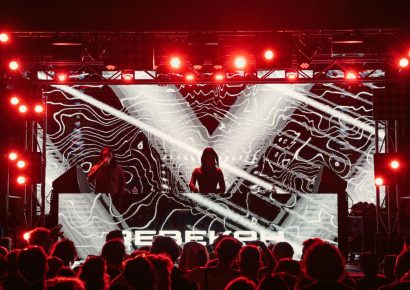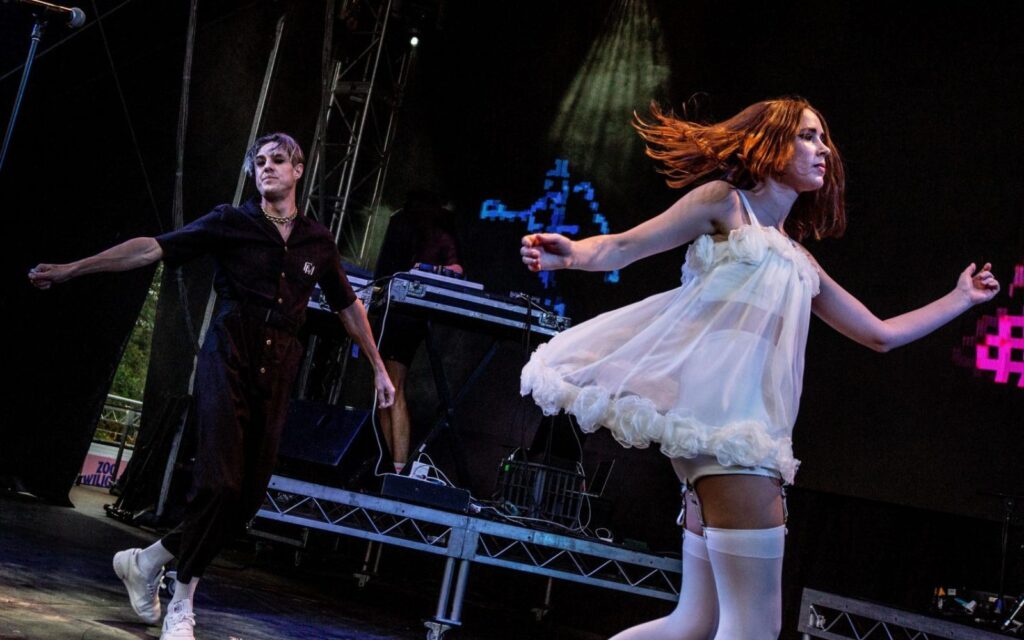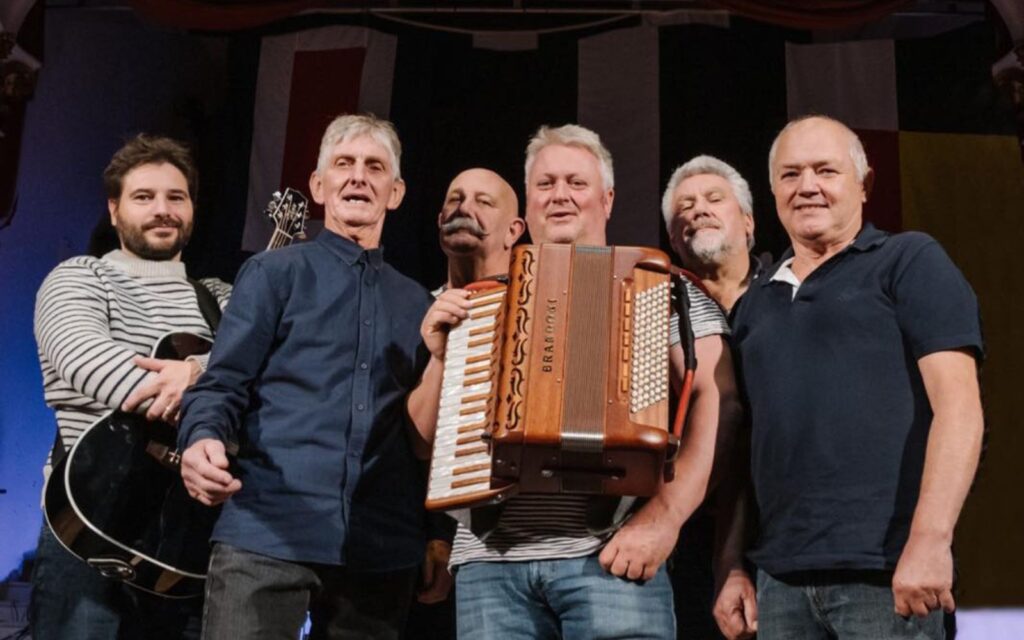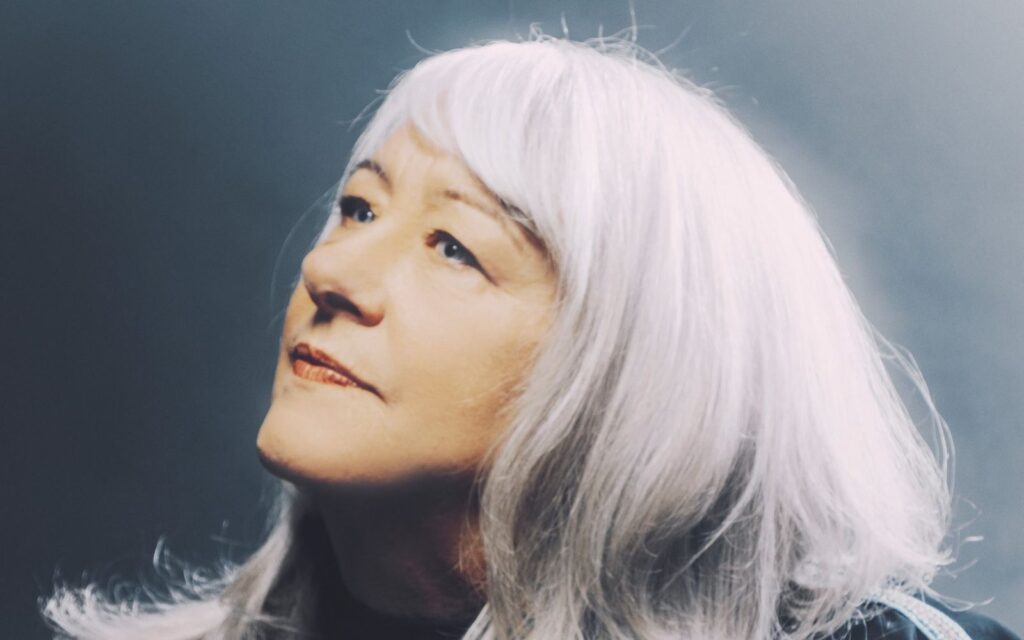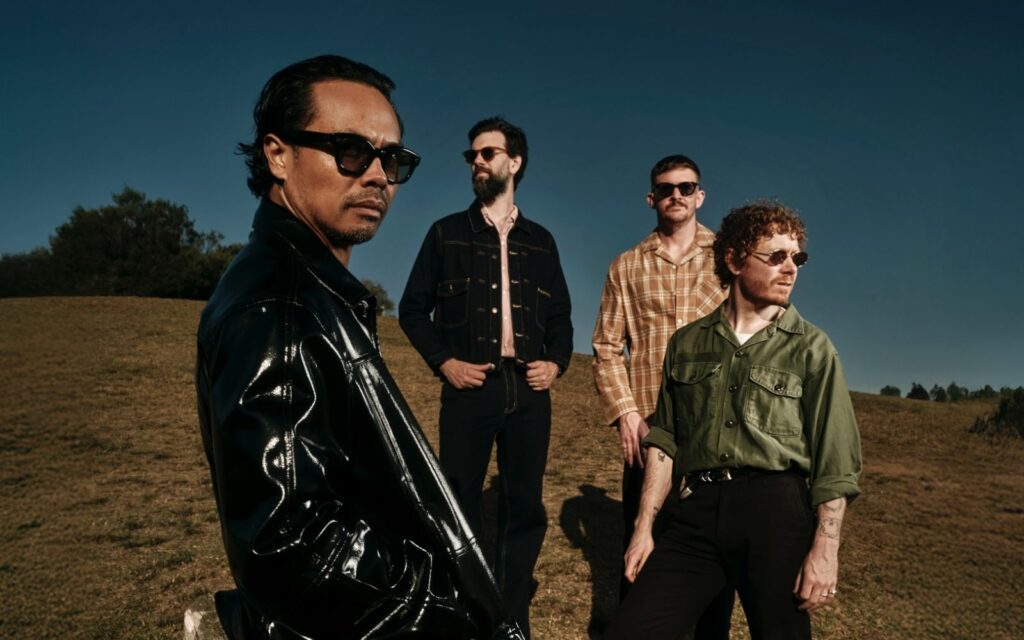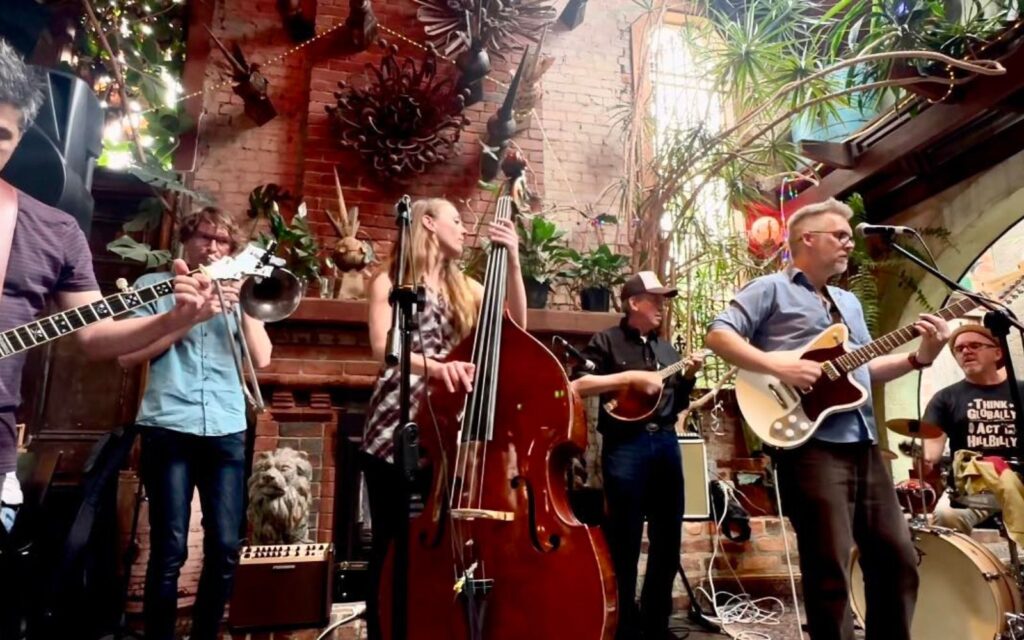I’m afraid it's more of a love letter than a review.
Alex the Astronaut stands with her band onstage at the Corner Hotel, all three dressed in sunny yellow. Her white hair is glowing, her face is bursting with joy. Over the course of the set, this little band room feels more and more intimate – all of us close to her and each other. I don’t know what I was expecting, but this was a surprise. A room full of enchanted people following her, singing together, waving in her light like sunflowers.
“It’s been my favourite show so far,” she tells us near the end. “You guys will cheer for anything.”
Keep up with the latest music news, features, festivals, interviews and reviews here.
My plus one tells me this show is so much more joyful and exuberant than Alex’s Woodford show years ago, when she saw her perform last – or the school assemblies at Pymble Ladies’ College where she saw her first, as Alex Lynn. (Alex, if you’re reading this, Susie Lauer has technically been one of your longest-time fans).
Alex has bloomed.
Last time she performed here, it was with Paul Kelly. Now, for her How to Grow a Sunflower Underwater tour, she owns the stage and a room of strangers. But it feels like we know her – she’s so open, honest and raw in her songs, and even moreso when performing and narrating them live to a room that’s hanging on her every word.
From the moment she introduces the show and brings drummer Kaleah Scanlon and bassist Vlada Edirippulige onstage, she’s charming us with her soft voice and sliding London-inflected accent.
“It’s story time,” she tells us.
This album is a storybook, complete with illustrations: animation and video projected onto screens beside her.
Alex’s narratorial style is self-deprecating, playful and cheeky, like we’re already in on the joke. She gives us little tidbits and backstories. How her friend Alice reads the opening to the Real Housewives Of New York on Haunted, to try and avoid copyright infringement (“Jail for Alice,” she states as the recording plays on stage). Why her accent is “fucked up” because she lived in South London for a bit. About Bluey the groper, the fish that has been allegedly murdered twice, and despite being yellow in the song Growing Up was, in fact, blue. Going to see her dog for the first time when the US borders opened and bringing him a wine bottle chew toy, because he’d become a grown-up since she was last there.
And we see it: home videos of her dog, the journey to America. Home videos of baby Alex, kid Alex, New York Alex, the history of you, with a little animated self.
I wonder if her entire tour for How to Grow A Sunflower Underwater has been this euphoric. The follow-up to her 2020 debut album, The Theory of Absolutely Nothing, is the kind of deeply personal folk pop we’d expect, equal parts lyrical and wordy and catchy bouncing riffs. Onstage, she plucks happily at guitar, but also has to have a crack at the keyboard because her usual keyboardist wasn’t there (“I just change the piano to C, don’t touch any of the black notes, and hope for the best.”) and treats us to some harmonica that she promises “will not be good” (it’s good).
This new album is influenced by her experience of an ASD (Autism Spectrum Disorder) diagnosis, particularly tracks like Octopus, and how this revelation changed and opened up her world. She shares how the diagnosis made sense of so many little peculiarities, her feeling of recognition in watching Netflix’s Atypical. But it’s all approached with her usual charming levity.
“They told me, Alex you have level one ASD, and I shouldn’t have been shocked… because I’m vaccinated,” she says.
The heaviness of the album subject matter benefits from her light touch, but it still hits: PTSD, struggles with identity, loss, therapy, sickness. The ragged edges of her voice as she sings “I LIKE TO SCREAM INTO THE SKY” in an acoustic rendition of Sick jabs at the heart like a sudden pulled muscle. But it’s all catharsis.
Her delicate piping voice and mix of gravity and levity balance dark subject matter with grace and empathy. She prefaces the song about domestic violence, I Like to Dance, with a trigger warning and a callout to the 1800 RESPECT counselling service. A gentle song about a terrible pain, accompanied by a soothing video of waves washing in and out. She shows respect in her representation of these sorrows that aren’t personally hers.
There’s a break about midway, where Alex steps offstage and the video projection plays the animated self. The cartoon narrator reflects on her life, how the album came about, how the cover was created, the fact that there are more sad songs even though she wishes there were more happy ones, but that growing sunflowers underwater is about hope.
Because for all the seriousness of her opening up about raw and painful things, we always return to joy and her irrepressible bubbly spirit.
“Do you like Harry Styles?”
We do. We cheer wildly.
“He’s not here. So here’s the ALDI version.”
An ALDI version of As It Was is, as with most ALDI versions, entirely excellent.
Alex plays her own now-classic hits, too. You’ll Be Already Home, the track that catapulted her into the indie sphere just a few years ago. Rockstar City, and I Think You’re Great – love letter to a friend. Haircut, an absolute bop on this new album, about discovering and negotiating new aspects of identity when she shaved her head for charity. “Since I cut my hair I’ve been feeling so much better”, rings out as a glorious joyful cry, the whole room in unison.
“…but it’s more than that, now the mirror looks back, and I feel like who I’m supposed to – do you know the feeling?”
And I think we all do.
Then the chorus hits on Ride My Bike. The drum beats rolling deep and heavy, rising like a wave to the crescendo and she sings, “I wanna be a bright light,” and I could cry. You can’t experience the swell of that emotion streaming a digital track, you can’t feel it through your body when it’s trapped in earbuds. But now, here, it’s huge and it’s everywhere in the room, in all of us at once.
She gives so much of herself that I think each of us find some part that resonates deeply.
By the end I want to reach out to her and say all the things I see we share, that I never got my pen licence either, that the same haircut changed my world, that I have the same fucked-up accent, that I cried when I realised who I wanted to kiss, and that I also sit in the stillness of an ocean or noise-cancelling headphones, like an octopus, making my colours match to what’s around me.
The entire gig is full of people brimming with that same feeling that spills out in our cheers, as we cheer for anything and everything. We try not to scream as loud as the bloke Joey in Newcastle, whose enthusiasm, she tells us in one interstitial story, had him ejected for his distracting praise.
This is all an undeniably queer joy we share here, and it goes beyond sexuality and into the queerness of a neuroatypical experience of self and surroundings. And that’s the whole album, for all of its sad songs: a celebration of identity, gender euphoria, survival, delight in the difference of a mind she understands better now, the flower reaching for sunlight and sky.
“We’re gonna start as small happy mice, and build to a big lion,” she tells us so we’ll sing along. She’s smiling so wide, and I’m just thinking how small we started once and how big and bright she’s become. A sunflower. A big lion.
Follow Alex and track her latest releases and dates here.

